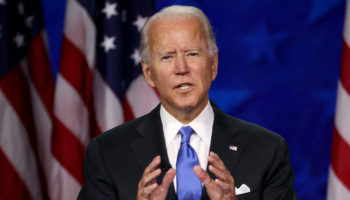A lot of thought is being given to the possible repercussions of Donald Trump being elected president, but just as valid a question given his 5/2 outsider status is what happens if he loses?
If you were hoping the answer would be “fade into obscurity”, you’re likely to be disappointed. bwin examined what became of the 13 non-sitting candidates to be beaten at the polls since World War Two and, as the below graphic shows, the majority commanded many a column inch after their failure:
1944 and 1948 – Thomas E. Dewey
Still the youngest Republican presidential candidate ever, the former New York Governor ran Franklin D. Roosevelt closer than any of his three predecessors in 1944, yet still got flattened, then found himself on the wrong side of one of the biggest shocks in election history when losing to Harry Truman four years later.
He gained a measure of revenge after convincing General Dwight Eisenhower – who wasn’t affiliated to either political party – to run against his old foe Robert Taft for the GOP nomination in 1952, with many of Dewey’s close political allies taking key roles during the ensuing eight-year reign.
1952/56 – Adlai Stevenson
After failing to secure the Democratic nomination for a third time in 1960, Stevenson was made a fool of by JFK during the failed Bay of Pigs invasion less than a year later when assuring the UN General Assembly that the Cuban rebels were not assisted in any way by the US Government.
Stevenson was immortalised in film thanks to Stanley Kubrick and Peter Sellers’ mid-1960s satire ‘Dr Strangelove’, with the latter’s bumbling President Merkin Muffley said to be based on him.
1960 – Richard Nixon
After losing to John F Kennedy, the former Vice President and US Senator from California launched a gubernatorial bid in his native Golden State two years later, going down to Democratic incumbent Pat Brown.
The defeat led many to believe Nixon’s political career was over. They were way off. He went on to win the White House in 1968 and 1972, becoming the only president to resign while in office two years later after Watergate exposed horrendous abuses of power.
Richard Nixon became president eight years after losing his first election1964 – Barry Goldwater
The long-time Arizona Senator was crushed 61.8% to 38.5% by Lyndon Johnson, who had only inherited the presidency a year earlier following Kennedy’s assassination, yet many on the right of US politics believe Goldwater’s policies laid the ground for Ronald Reagan’s successes in the 1980s.
‘Goldwater moment’ has been used to describe occasions when members of Congress openly disagree with a president from their own party since his urging for Nixon to resign at the height of the Watergate scandal.
1968 – Hubert Humphrey
Having been US Senator from Minnesota for 15 years prior to becoming Johnson’s running mate in 1964, serving as 38th Vice President during the Texan’s reign, Humphrey returned to the upper house after losing out to Nixon in the race for the big job four years later.
He ran unsuccessfully for the Democratic nomination in 1972 and considered doing so again in 1976, but sat out the fight after being diagnosed with terminal cancer. Just over a year after Jimmy Carter’s inauguration in January 1977, Humphrey died at home at the age of 66.
1972 – George McGovern
The US Senator from South Dakota’s defeat to Nixon was so catastrophic that Democratic candidates have run away from the term ‘McGovernism’ since, although both Barack Obama and Bernie Sanders share some of the former fighter pilot’s sentiments.
He never stopped speaking truth to power, with the McGovern Report – which suggested Americans eat less fat and sugar – leading to Bill Clinton appointing him UN Global Ambassador on World Hunger in the late 1990s. A staunch opponent of the Iraq War, as he was of Vietnam, McGovern died at the ripe old age of 90 in 2012.
1984 – Walter Mondale
Not content with losing every state bar Minnesota against Reagan, Mondale managed to complete the set when trying to win back his old Senate seat in 2002, losing out to Republican Norm Coleman.
He did get some of his own back on Coleman when backing former Saturday Night Live writer Al Franken’s bid to take back the seat in 2008, with Mondale accompanying the triumphant New Yorker during his Senate swearing-in ceremony.
1988 – Michael Dukakis
Reflecting on his defeat to George H. W. Bush 20 years later, Dukakis told interviewer Katie Couric that he owed the American people an apology, because “if I had beaten the old man, we never would have heard of the kid, and we wouldn’t be in this mess”.
The long-time Governor of Massachusetts never ran for elected office again, but campaigned with gusto for prominent Democrats such as Deval Patrick and Elizabeth Warren over the past decade.
1996 – Bob Dole
Now 93 years young, Dole’s post-presidential-candidacy career has been by some way the most colourful in recent times, with the Kansas pensioner sending himself up on Saturday Night Live, The Daily Show and Suddenly Susan.
He has also appeared in some interesting ad campaigns for the likes of Viagra and Pepsi, with Dole and his dog apparently enjoying a dreadful Britney Spears number in the latter.
Bob Dole continued to have an influence on GOP matters after his 1996 defeat2000 – Al Gore
After losing the election to Bush, despite winning the popular vote, Gore went back to an issue close to his heart, founding the Alliance for Climate Protection, starring in the Academy Award-winning documentary An Inconvenient Truth and eventually going vegan.
Together with the Intergovernmental Panel on Climate Change, the ex-Vice President was the recipient of the Nobel Peace Prize in 2008.
2004 – John Kerry
George W. Bush’ surprisingly-clear victory left the three-time Purple Heart recipient to brood in the Senate while Obama-mania took over the Democrats, with Kerry overlooked for key roles in the Hawaiian’s administration despite endorsing him for the nomination earlier than many.
Colorado’s finest was called upon to play Romney against the current POTUS in preparation for the 2012 presidential debates, and got the invitation to replace Hillary Clinton as Secretary of State – a position Kerry still holds – shortly afterwards.
John Kerry worked his way to the Secretary of State position less than a decade after losing an election2008 – John McCain
Somewhat ridiculously for a former GOP presidential nominee, McCain has spent much of the past eight years fending off far-right elements on his own side, calling Tea Party insurgents “hobbits” from “Middle-earth” in 2011.
Despite constantly criticising Trump during this election cycle, Arizona’s proximity to the Mexican border forced McCain to endorse the Republicans’ chosen candidate in August, knowing failure to do so would likely lead to the end of his 33-year congressional career.
2012 – Mitt Romney
At the time of writing, the 69-year-old is yet to endorse anyone for president, although fellow Utah native and #NeverTrump candidate Evan McMullin might have his ear.
With Trump setting his party on fire, the businessman and former Massachusetts Governor was urged to run again, but contented himself with a scathing attack on the septuagenarian, who Romney called “a phony, a fraud…playing the American people for suckers”, back in March.









